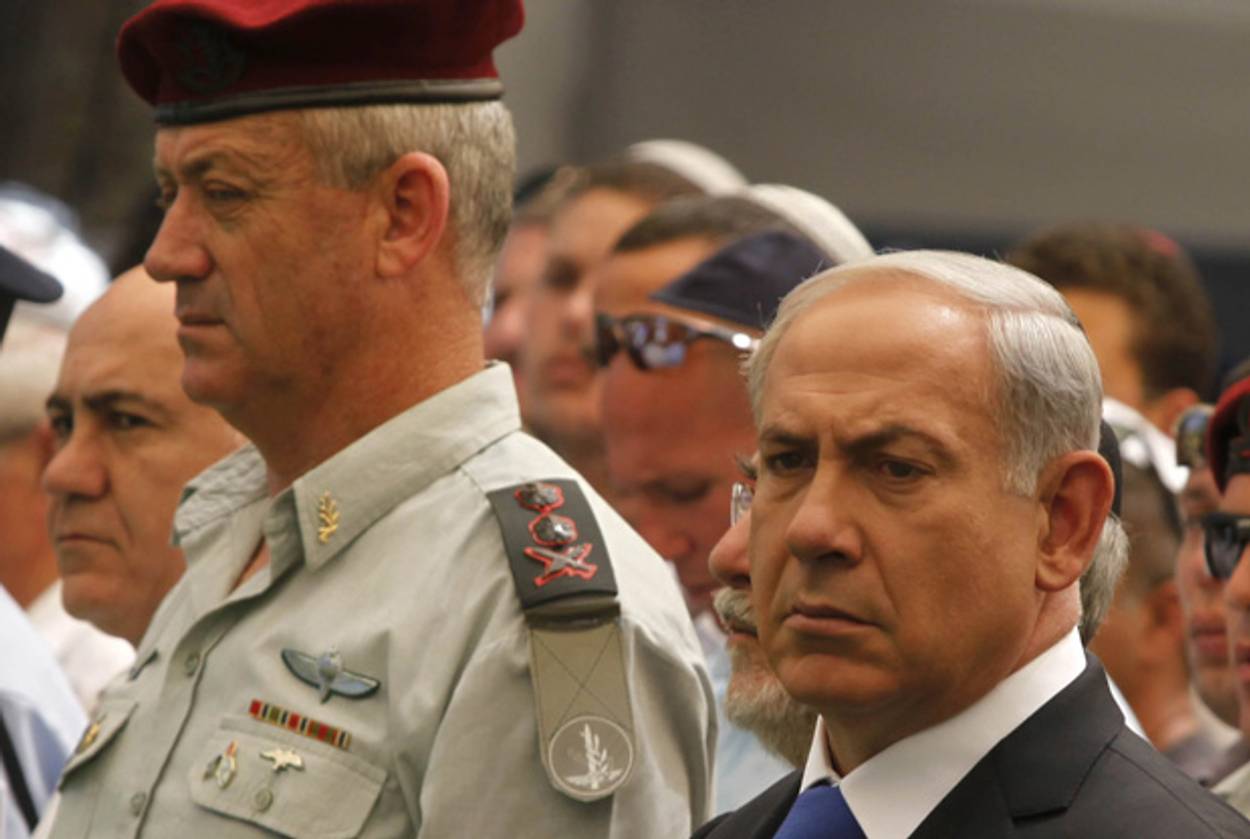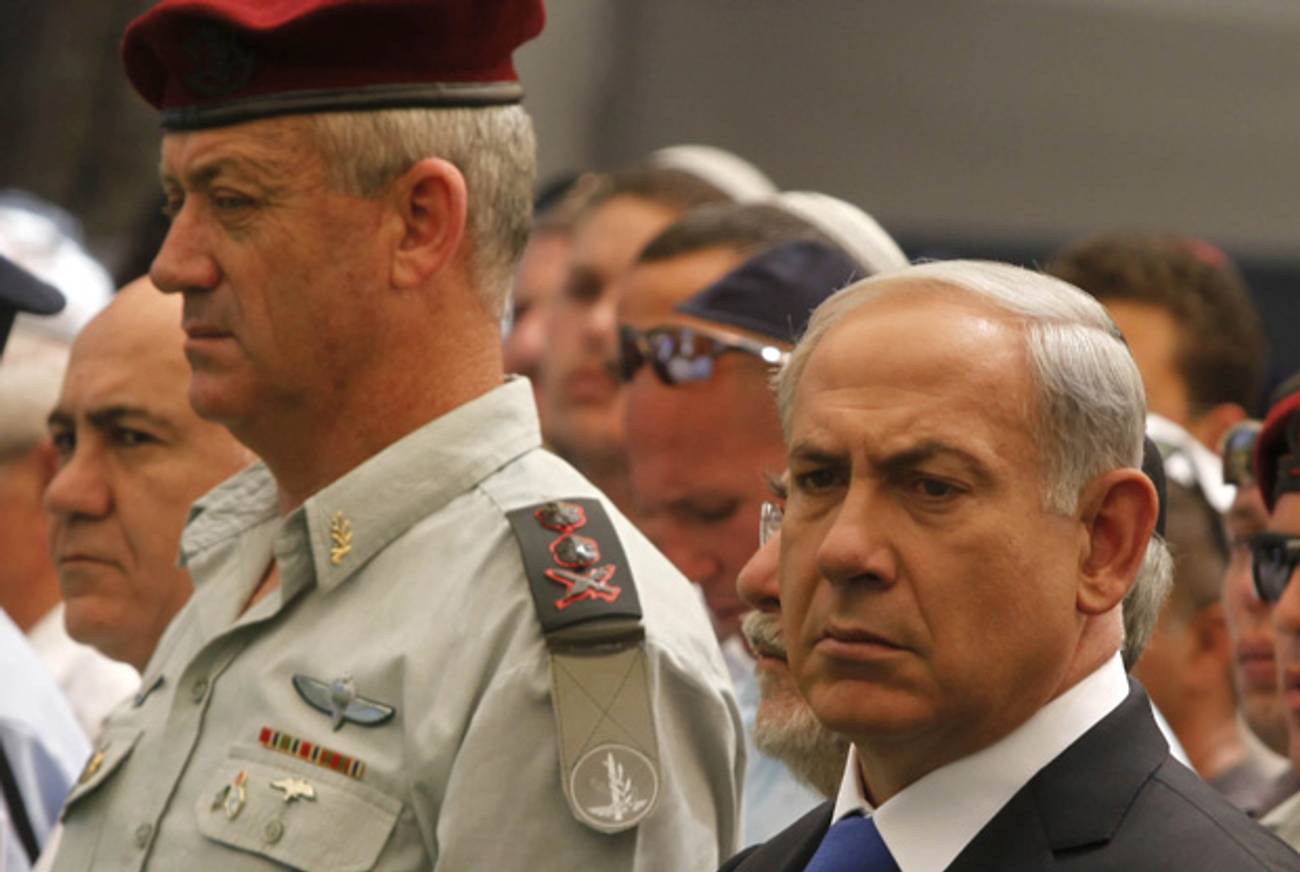How Israeli Elections Affect an Attack on Iran
Why Bibi wants a new government before U.S. Election Day




Prime Minister Netanyahu’s call (not coming explicitly from him, yet) for early elections, most likely in the first week of September, that his Likud Party is likely to win resoundingly are being seen as motivated by two external factors: the U.S. presidential election in November and the possibility of an Israeli strike against Iran’s nuclear facilities. The consensus is that Netanyahu would like to put himself in a strong position before the U.S. elections—particularly so that if President Obama is re-elected, he will be in a strong position to withstand potential American pressure on either Iran or the peace process.
The clear consensus is that an attack is probably less likely at least until the election itself, under the theory that you don’t want to risk re-election.
“Netanyahu is known for his caution,” David Makovsky, of the Washington Institute for Near East Policy, told Tablet Magazine this morning. “You don’t want to waste your political future on an uncertain strike.” Makovsky added, “If he goes for elections and engages in a strike and it goes bad, it endangers his political fortunes.”
According to Makovsky, there have been some unreported conversations between the Israeli and U.S. administrations in which Israel has tried to secure U.S. promises that current guarantees—such as, presumably, Obama’s ruling out of containment as a strategy for an Iranian nuclear weapons program—would continue to be respected in a second Obama term.
Makovsky even posited that the chicken-and-egg question is more complicated: the early elections could be less a restraint on an imminent attack and more a sign that an imminent attack has been all but ruled out. “Obama saying all this talk of going to war could raise gas prices and a very fragile economic recovery—if they feel they have to deal with Obama for four more years, they’re afraid if he wins, they’ll hold it against him that they didn’t take his political future into account,” Makovsky argued. “And if there’s not going to be a strike anyway, you might as well hold the election.”
Earlier this week, Jeff Goldberg argued that once you factor in the need to build a coalition following an election and then the closeness to the U.S. election itself, the election plans likely diminish the possibility of an attack until November.
Much easier to discern is Netanyahu’s desire to have re-established his rule before Obama re-establishes his—or before a new administration, which carries its own uncertainties, comes to power.
“[Netanyahu] feels he’s guaranteed a honeymoon with the U.S. in 2012,” explained Makovsky, “and as long as he thinks Obama has a chance to win, he wants to lock in four more years, so that the opposition can’t say, ‘You’re not the man to manage things for the next four years with a second-term administration.’”
“I think he believes that this insulates him,” he added. “I think that’s above all the primary consideration.”
Haaretz’ Ari Shavit agreed that the U.S. election is foremost on Bibi’s mind in moving for early elections, writing, “If Obama wins in November, he will immediately crush the Israeli prime minister who dared to defy him. As a result, by December the right-wing government might already be feeling the pain. That’s why Netanyahu wants to hold the election toward the end of the summer.” Shavit also, however, appears to feel that Bibi may be looking to execute, under an “insane” timetable, an electoral victory in September, and then a strike on Iran before the U.S. elections in the first week of November. Makovsky, by contrast, feels a strike would most likely come after the U.S. election—perhaps especially, he suggested, if Mitt Romney wins and Obama is a lame duck.
Another factor, according to Makovsky, is the prospect of a major recession in the European Union, Israel’s largest trading partner, which could harm the Israeli economy—an eventuality for which Netanyahu would, again, like to be safely ensconced in office.
One point many seem to agree on is that an election in Israel right now can’t help but turn on the Iran question.
“[Netanyahu]’d probably interpret any victory as a mandate that the public is giving him the option of a strike,” Makovsky said.
Israel’s Move Toward Early Vote May Shelve Attack on Iran [LAT]
Is War With Iran Imminent? [Atlantic Goldblog]
Israeli Elections Must Become a Referendum on Iran [Haaretz]
Marc Tracy is a staff writer at The New Republic, and was previously a staff writer at Tablet. He tweets @marcatracy.